The Big Read: As pandemic drags on, community volunteers grapple with fatigue, burnout and dip in donations
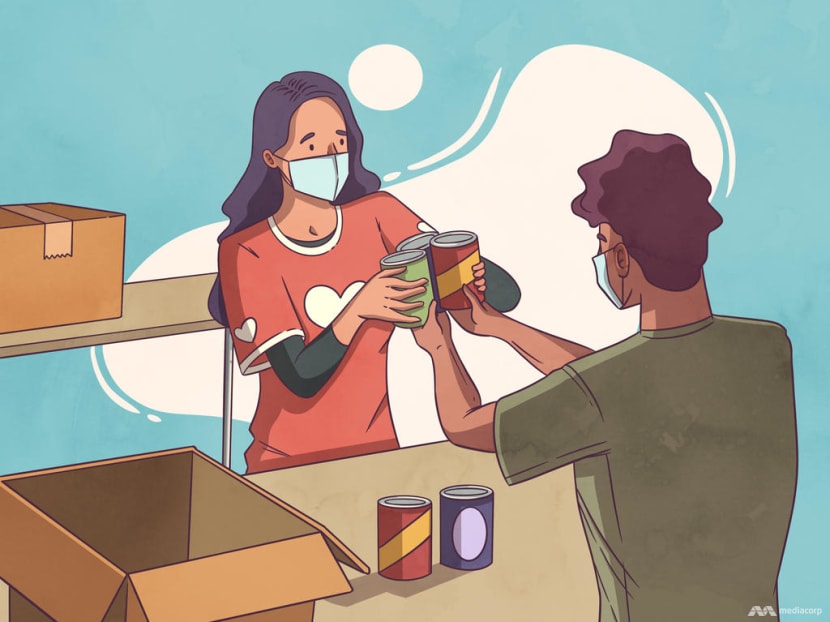
The gamut of restrictions to curb the spread of the virus has also made the volunteers’ work more challenging, as they come up with various ways to continue their outreach amid waning enthusiasm among people coming forward to help. (Image: TODAY/Anam Musta’ein)
- Like frontline healthcare workers, community volunteers have also suffered fatigue and burnout amid the protracted COVID-19 crisis.
- Restrictions to curb the spread of the virus have made their work more challenging.
- Online volunteering are less fulfilling compared with meeting beneficiaries in person, said those interviewed.
- Overall, the number of volunteers and public donations have been dropping significantly, leading to a cut back of activities.
- There is concern that if the trend continues, a proportion of vulnerable members in the community would be left behind.
SINGAPORE: At the peak of the COVID-19 outbreak in migrant worker dormitories here in April last year, Mr Nicholas Oh rallied volunteers to deliver care packs and organise activities to welcome these workers, who had to be temporarily housed in residential estates, to the local community.
But since late last year, the 25-year-old has been taking a hiatus from such laudable pursuits as he seeks to recover from volunteer burnout.
“There is definitely a bit of guilt. Taking a step back from working with the migrant worker community and advocating for their well-being also impacted my relationships (with the workers), so that is the part that I continue to find most difficult to deal with,” said Mr Oh, who co-founded the volunteer-run initiative Welcome In My Backyard (WIMBY).
Like him, Mrs Sashi Siva, 37, also pulled the plug on all her volunteering activities after struggling to combat the overwhelming fatigue — both mentally and physically — that she had felt since the start of this year.
She had been distributing care packs to seniors living in one-room rental flats in Bedok every month since May last year, before calling it quits after 12 months.
“I felt like I became demotivated and disillusioned. Even when I was volunteering, I felt like my mind wasn’t physically present,” said the marketing executive who has two boys aged four and six. “Is this what they call COVID fatigue?”
The COVID-19 crisis first hit Singapore in January last year and there is still no end in sight.
Fighting a seemingly endless battle that is COVID-19 has taken a huge toll on frontline healthcare workers. Likewise, another group of frontliners has also suffered fatigue and burnout: Community volunteers involved in ground-up initiatives to help vulnerable groups affected by the pandemic.
The gamut of restrictions to curb the spread of the virus has also made the volunteers’ work more challenging, as they come up with various ways to continue their outreach amid waning enthusiasm among people coming forward to help.
Some of the volunteers interviewed said that online volunteering opportunities — which had generated much interest last year after Singaporeans experienced their first partial lockdown from April to June — have lost their appeal as virtual engagement is less effective and, in turn, less fulfilling for the volunteers.
All this has led some volunteers to discontinue the very initiatives they had launched last year to help the growing number of people whose lives had been thrown out of kilter due to COVID-19.
Philanthropic organisation The Majurity Trust (TMT) said it had seen a slowdown in applications coming in for its SG Strong Fund, which was launched in February last year to support ground-up initiatives during the pandemic.
Nevertheless, TMT director of philanthropy Charles Tan said this did not come as a surprise given that the immediate needs arising from the pandemic had been taken care of over the past year.
“We have all found some degree of normalcy, a new normal,” he said.
Last year, the SG Strong Fund disbursed money to 155 ground-up projects, with as many as 20 applications in a week during the initial months of the pandemic.
In August, TMT partnered with the Community Foundation of Singapore on an initiative, which, among other objectives, increased the avenues for groups to apply for funding.
Currently, the SG Strong Fund receives about three applications a week.
Mr Tan pointed out that the SG Strong Fund last year was started “as a quick response fund to catalyse community efforts to help the vulnerable as the COVID-19 pandemic unfolded”. He described the new S$300,000 partnership, called groundup@Sg, as an extension of the fund to “help ground-ups build capacity and strengthen their impact”.
While some volunteer groups which have institutional donors continue to see a steady stream of donations, those which are largely dependent on the public’s generosity have seen their coffers dwindle and are struggling to keep afloat.
SHARP DROP IN VOLUNTEERS AT A CRITICAL TIME
While the overall economic situation is on the mend, the Singapore economy continues to suffer from the impact of closed borders and decimated or struggling industries. Yet, at a time when the number of those needing help keeps growing, non-profit organisations and volunteer-run groups have seen a significant drop in the number of volunteers, by up to 80 per cent.
This can be seen among charities and ground-up groups that TMT partners.
Similarly, non-profit organisation Helping Joy, which provides home cleaning services to the physically disabled or seniors who have no immediate family, has seen its pool of delivery drivers drop drastically, from 30 last year to about three in recent months.
Centre manager Irene Woon Ailing said: “Maybe it has to do with the COVID-19 restrictions or maybe they’re working from home, so not a lot of them want to go out of their way to make deliveries.”
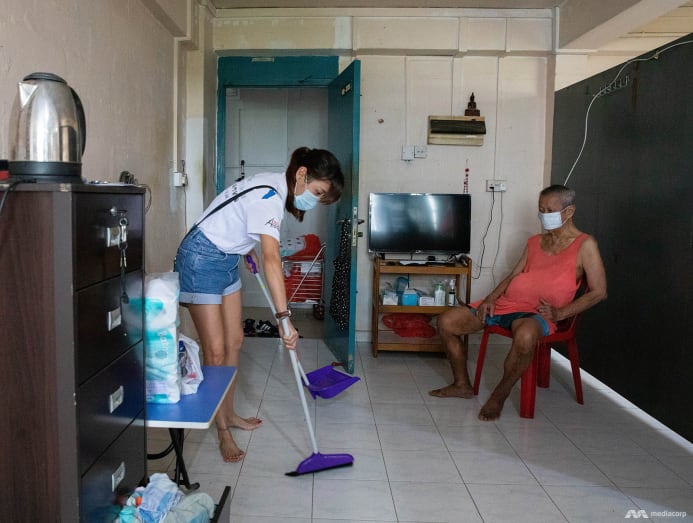
Due to the public health situation, volunteer groups also have to exclude a group of people from their activities — those aged 60 and above.
Such is the case for non-profit organisation RSVP Singapore, where the bulk of its volunteer pool is made up of seniors.
Its chairman, Mr Koh Juay Meng, said 80 per cent of his 1,000 regular volunteers had to be excluded from volunteering activities following the Government’s guidance for seniors to stay at home since the start of the Phase Two (Heightened Alert) in May.
“It’s not that they don’t want to participate, they were very eager to. But unfortunately, we had to exclude them for their own protection,” he said.
Non-profit organisations interviewed expressed concern that a proportion of vulnerable members in the community would be left behind, if the pool of volunteers continues to shrink, with many taking their ground-up initiatives along with them.
Lions Befrienders chairman Anthony Tay noted that ground-up initiatives tend to be more in touch with the needs of the community.
“In the social service sector, the lack of ground-up initiatives would mean a lack of relevant assistance. In these ever-changing times, it is all the more important that charity organisations, including Lions Befrienders, work towards understanding and meeting the evolving needs of the beneficiaries,” he said.
TMT’s Mr Tan reiterated that these efforts play a critical role by responding organically and nimbly to community needs.
“During this period where volunteerism is curtailed, we sense a palpable loss, especially for the vulnerable and less mobile groups that were used to having in-person interaction pre-COVID, such as the isolated seniors living in rental blocks and residents in destitute homes,” he said.
VOLUNTEERS NAVIGATE ROADBLOCKS
After over a year of organising activities according to the ever-changing COVID-19 rules, some community volunteers have become exasperated.
Ms Siva said she took three weeks to plan one distribution drive to needy elderly residents — only for her plans to be disrupted when heightened alert measures were imposed that month to curb a new round of rising coronavirus infections.
“I called volunteers to coordinate the timing and areas they could go, got the catering company to prepare the meals and planned the route for delivery drivers. Suddenly, the measures were tightened and we had to cancel all our plans,” she said. “I really wanted to cry.”
The number of volunteers who signed up for her distribution drives has also dwindled over the past year, from 30 at the start of the pandemic last year to seven in May this year.
WIMBY’s Mr Oh, who started his full-time job as a civil servant in June last year, said the additional workload of organising activities on top of his full-time job could be mentally taxing, and it was not long before it took a toll on him.
“When it comes to community building, the work is not formal. It has a lot to do with coordinating with people, engaging stakeholders, getting approval from the relevant authorities … it’s taxing because there are so many different moving parts,” said Mr Oh.
Listen to hospital staff discuss the challenges in dealing with Singapore's latest COVID-19 surge on CNA's Heart of the Matter podcast:
SOME SOLDIER ON
While Mrs Siva and Mr Oh have taken time out to recuperate from their volunteer fatigue, some others are determined to press on and fight through their exhaustion.
One of them is Ms Dipa Swaminathan, founder of migrant worker advocacy group ItsRainingRaincoats, who recalled having several emotional breakdowns after encountering non-ending heartbreaking stories about the workers’ plight in the past year.
“It’s been relentless … there really hasn’t been a break,” she said.
“It’s just been so intense and so emotionally draining seeing men who are crying (because) you internalise all of that, all of their grief, their difficulty, and then you put on a brave face and carry on with your life – meeting your friends and talking about everyday things.”
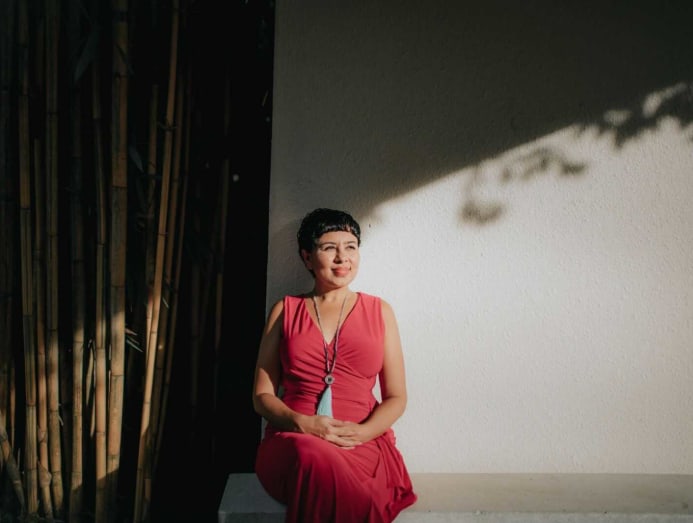
The 50-year-old, who works as an assistant general counsel for Singtel, went to see a medical specialist to deal with the burnout after she had difficulty sleeping.
“It was great to have somebody professional, somebody impersonal, that I could talk to about everything – my work fears and all that I’m going through. And to have her coach me through it was really meaningful,” she said.
Although she has seen her volunteer pool decrease by about 15 per cent, Ms Dipa said she is determined to continue the work.
“It’s also the belief that if I don’t do it, who would?” she said. “I started ItsRainingRaincoats as one person and I know how far we’ve come and how the workers’ lives have been positively affected so yeah, there is no choice, there is no alternative.”
Like her, Mr Raymond Khoo, 57, a restaurateur and founder of ground-up initiative The Saturday Movement, also has had his fair share of sleepless nights.
Mr Khoo distributes tokens for the elderly living in one-room rental flats in Lengkok Bahru to collect free warm meals at the community kitchen which he runs with fellow volunteers.
Sometimes, he would go for long drives when he could not sleep at night.
“Talking to the seniors in the estate, especially those who live alone and have no immediate family members, can be exhausting.
“Whenever a new restriction gets announced, I need to explain to them why we can’t gather in groups or why we can’t eat here. And sometimes they tell me ‘Everything also cannot, like that can die ah!’” he said.
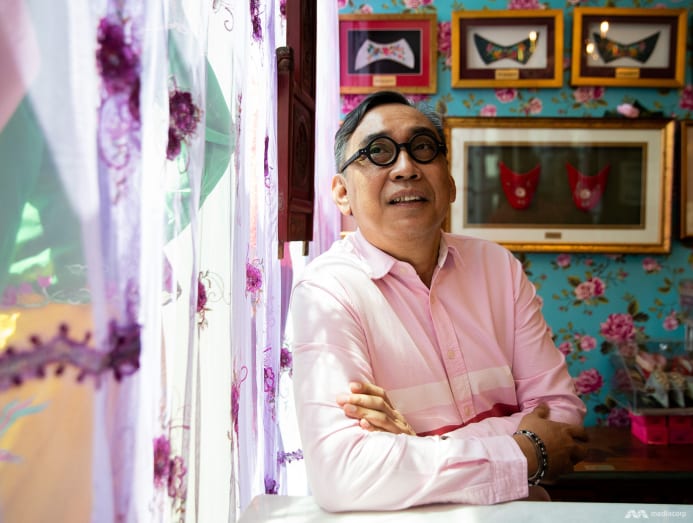
While he did contemplate shutting down the community kitchen when business at his Peranakan restaurant took a hit earlier this year, Mr Khoo said that knowing such a move would deprive these elderly residents of getting proper meals stopped him from doing so.
He has since dipped into his savings and even took out a bank loan to keep the community kitchen running.
Ms Fion Phua, the founder of ground-up initiative Keeping Hope Alive, which distributes food and offers home cleaning services to residents of one and two-room rental flats islandwide, echoed a similar sentiment. Having had a glimpse into the lives of lonely and vulnerable seniors, Ms Phua said she just could not quit doing volunteer work with a clear conscience.
This is despite having to grapple with the heat as she covers herself in personal protective equipment whenever she visits residents, and having to coordinate volunteering sessions every month without fail.
The 50-year-old club membership broker recalled having to bring an elderly man to seek medical help at a clinic in a nearby shopping mall after the vaccination-differentiated measures kicked in on Oct 13, only to be turned away because he was not vaccinated.
She later found out that he did not have access to a mobile phone to book vaccination appointments.
“Some don’t have mobile phones, some have mobile phones but don’t have Wi-Fi … then there are seniors who need to top up their prepaid cards but don’t know how to,” said Ms Phua.
She admitted that her passion for volunteering had waned but she would not back down.
“If you ask me whether I’m tired or not, I will tell you I’m very tired. But there’s a lot that needs to be done for (the seniors) and there’s also a lot that I have yet to do,” said Ms Phua.
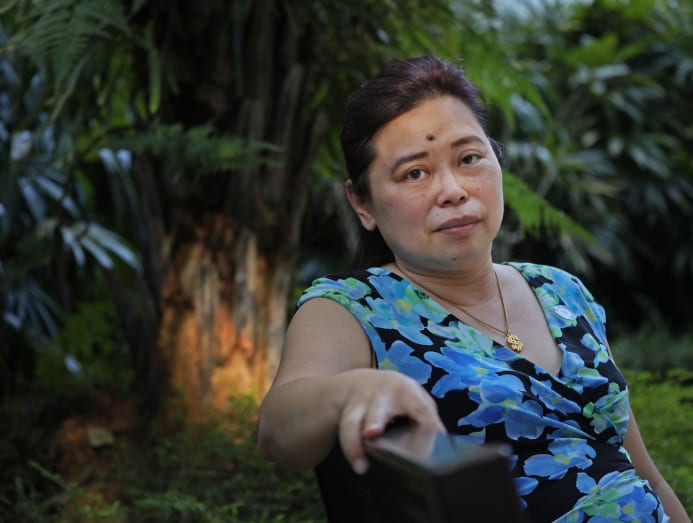
ONLINE VOLUNTEERING ‘LESS FULFILLING’
Those who have taken volunteering online have also found themselves overwhelmed by the sheer amount of work to coordinate such sessions, which they have found to be less effective and fulfilling compared with meeting the beneficiaries in person.
Mr Wally Tham started the Braveheartsg initiative where members of the public penned their notes of appreciation to healthcare workers. It held a campaign last year which was designed for online participation in order to minimise physical contact amid a raging pandemic.
But the online exercise made participation an “extremely narrow” experience.
“When it’s narrow, when you can’t meet the ones you want to help or meet the team to ‘be with’, the human experience is lost. The payoff of social connection is reduced to a list of tasks to be fulfilled to a schedule. Not fun at all,” he said.
Ms Sherry Soon, founder of Be Kind SG, which hopes to inspire acts of kindness through micro-volunteering opportunities for working adults, said there were times when she felt overwhelmed organising virtual meetings.
She felt like she had “dropped the ball” when she saw others not being fully engaged in the virtual volunteering sessions and later, stopped participating altogether.
She attributed the loss in appeal to frequent teleconferencing demands that volunteers face in their full-time jobs.
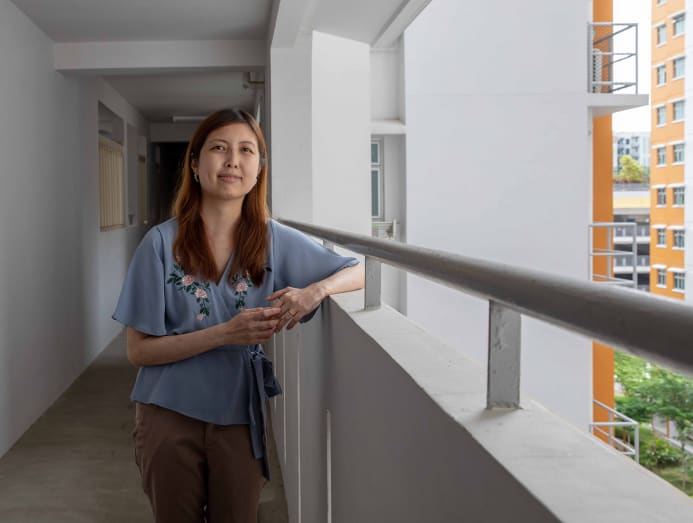
FALLING DONATIONS
On the financial front, many Singaporeans have scaled back on donating to charities at a time when the organisations are most in need of funds — due to the coronavirus-induced economic downturn that has left many erstwhile donors strapped for cash.
This has led many charities to cease operations last year.
While contributions from institutional donors have generally held steady, the majority of volunteers interviewed said they have seen a significant reduction especially in public donations since the beginning of the year, especially when fundraising events could not be held.
Mr Koh from RSVP Singapore said he has seen public donations go down by about 30 per cent, while Lions Befrienders has seen a 35 per cent drop, said Mr Tay.
“Individuals are more conscious of their expenditures, and donors, especially corporations and foundations, are tightening their budgets,” Mr Tay said.
“Given the current economic outlook and the recent surge in cases due to the prolonged COVID-19 pandemic, many companies have been hit hard and require funds for their businesses. This has resulted in a conservative stance when it comes to donations,” he added.
However, TMT’s Mr Tan said the organisation has not seen a noticeable drop in donations from its sources which include corporates, family offices and philanthropists.
In fact, the charities which it partners have raised concerns that there is an inclination by these donors to give to COVID-19-related needs, instead of other ongoing services and programmes which continue to require resources and support.
As a result of the reduced donations, some ground-up initiatives are having a hard time meeting the needs of their beneficiaries.
The Saturday Movement’s Mr Khoo, for example, who puts in about S$15,000 to S$20,000 of his own money each month to fund the social enterprise, said he has been feeling the pinch ever since business at his restaurant plummeted.
To reduce costs, he had to cut back on serving seafood at the community kitchen.
“We used to cook prawns and squid once a week for the meals, but now we can't do it every week. We also have to control our costs. Just this month alone, the utilities doubled in price,” he said.
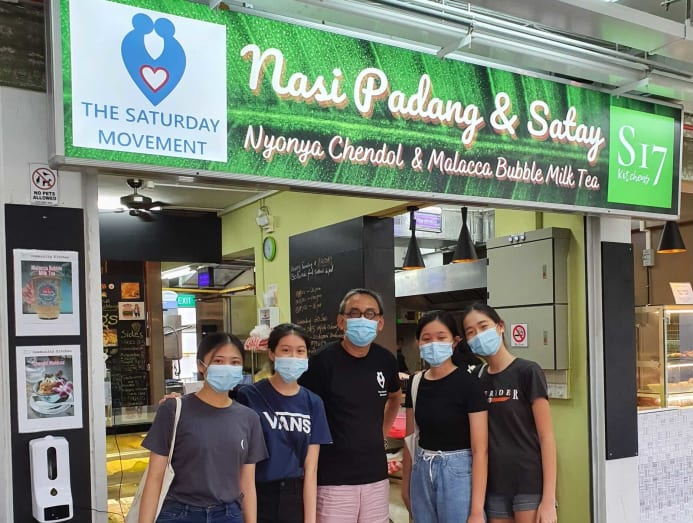
As Singapore adjusts to living with COVID-19, some volunteers recognise the need for them to also evolve the way they do things and help their teams stay the course.
Ms Dipa from ItsRainingRaincoats, for example, wrote in to hotels to ask for sponsored meals for her volunteers and have gotten good responses.
“(The work) is very difficult and it’s very challenging … which is why at the beginning of this year, on top of everything else that I have going on, I was trying to do something for the volunteers,” she said.
Nevertheless, she noted that volunteers are not driven by any goodies or perks but by a sense of fulfillment.
“We don’t attract volunteers with goodie bags … so those who have come to us, come genuinely because they are moved by the plight of migrant workers,” she said. “We have nothing to give them in return except fulfillment in doing what they do.”
And it is this sense of fulfilment, along with the knowledge that their beneficiaries have nobody else to turn to, that keeps many community volunteers soldiering on despite the toll it takes on them, even if it means taking a break to recharge before they go again.
BOOKMARK THIS: Our comprehensive coverage of the COVID-19 pandemic and its developments
Download our app or subscribe to our Telegram channel for the latest updates on the coronavirus pandemic: https://cna.asia/telegram















